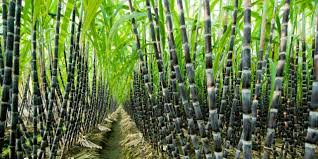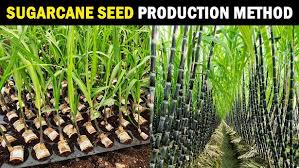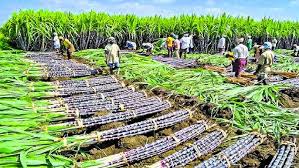![]()
If you’ve landed on this article page, you’re probably searching for a
good business idea—an idea that’s light on the pocket but heavy on
returns, promising both a fulfilling journey and potential profit.
|
How to start a Sugarcane Farming Business in Nigeria
Currently, Nigeria has the largest sugar refining plant in
Africa yet most of the raw materials needed to produce sugar are
imported from Brazil. This comes at a cost to the country of
over $500 million every year.
It is important for you to know that the agricultural land in
the country is more than enough to cultivate the sugarcane we
need for sugar production.
The available land has the potential of processing approximately
5 million metric tonnes of sugarcane which gives about 3 million
metric tonnes of sugar. The potential associated with sugarcane
farming is really massive, yet only a few are taking advantage
of it. One reason for this is the possibility that a lot of
potential investors are not equipped with the adequate knowledge
to help them in the process of starting a sugarcane plantation.
It is interesting to note that the Nigerian government has
provided incentive to those in the sugar industry by offering a
5 year tax free holiday to investors, So, what is holding you
back from being a sugarcane farmer?
Sugarcane doesn’t require huge capital for a start. You can
start with one hundred thousand naira excluding land except you
are leasing
A hectare of land yields 80–140 tonnes of sugarcane in the right
conditions. The quality of the canes harvested relies on
climate, soil properties, weed control, frequent irrigation, the
variety of sugarcane and harvest method
WHAT DO YOU NEED TO GET STARTED WITH YOUR SUGARCANE FARM?
1. Land: If you have lots of acres that have been vacant for
many years, you might as well use it for your new venture.
A farmland containing sugarcane
2. Market: The important thing you need to do is to look for the
probable demand of the product that you are about to provide
your market.
Look for companies and sugar suppliers who are interested in
doing business with you and negotiate with them.
3. Staff: You will need few workers in the beginning so you will
not be pressured in handling number of people who will work on
your farm. But as your business expands, you would need to
recruit more workers on your farm.
FARM SET UP AND PRODUCTION
Sugarcane are planted in furrows at either horizontal or at
45-degree angles. It takes anywhere between 12,000 and 25,000
stems to plant 2.5 acres (1 ha) of land.
After they are planted, they are covered with a light layer of
soil.
The method of planting sugarcane is by vegetative cuttings of
either the stem or some sections of the stalk. These are called
setts.
On the other hand, you can also plant settlings which are
sections of the cane with the roots or shoots. The sugarcane
setts or settlings should be planted horizontally into furrows
or trenches of about 4 inch deep.
The insects that are known to attack sugar cane plantation
include the early shoot borer, internode borer and pyrilla.
There are some common disease infestations too. The most
destructive of them are the red rot and the ratoon stunting
disease.
Generally, treatment in the case of a pest or disease
infestation involves the use of the appropriate fungicide and
pesticide.
HARVESTING
Sugarcane harvesting is a complex process that involves careful
cutting and handling procedures to maintain high sugar content
and cane quality.
In developing nations, and even in some sugarcane mills that see
more advantages to the manual method, little or no machinery is
used for the labor- intensive process.
In anywhere from eight to 12 months, sugar stem, also known as a
set or seed piece, is cut from the sugarcane.
It is more desirable to cut the stem from the upper third
portion of the cane so that the maximum sugar content can be
retained. This is also beneficial for the crop that remains
planted, as it will continue to grow without any necessary
replanting.
Harvesting normally takes place between June and December, when
rainfall is at a minimum. When canes are harvested, the soil is
left alone for a short period of time and then tilled and plowed
by plows to allow moisture to access the seeds, which stimulates
growth.
Utilizing machinery to harvest and cut sugarcane sometimes means
accepting losses to soil compaction and a decrease in the
quality of the sugarcane. Dirt tends to associate itself more
with machinery, affecting every process of sugar production,
from the fields, to the grinding, to the final product.
You can harvest sugarcane up to 2 times in one year. And the two
major methods used are; the manual method which involves setting
the field on fire to burn dry leaves and to destroy snakes
hiding in the plantation and the mechanical method for large
scale farms.
The main product of sugarcane is raw sugar, made from the juice
of the cane, and molasses which is a by-product of the sugarcane
refining process.
Ethanol can also be produced from sugarcane, which is an alcohol
made by fermenting the sugar and starch components of plant
materials using yeast.
Ethanol can be used for food products but is also used as a
biofuel.
Bio-ethanol can be used in its pure form but is commonly added
to gasoline to reduce vehicle emissions.
DISTRIBUTION/MARKETING
90% of the sugar used in Nigeria is refined by indigenous
refineries which means you already have an easily accessible and
available market in the country. Therefore, there is little or
no need for you to go through the stress of applying for an
export license before you can plant sugarcane.
Starting a sugarcane farming business in Nigeria and Africa
requires careful planning, hard work, and dedication. With the
right skills, knowledge, and resources, you can create a
profitable and sustainable sugarcane farming enterprise. Get our Practical Training Guide on how to start a Sugarcane Farming Business in Nigeria. In this comprehensive guide, we will walk you through the steps to start a profitable Sugarcane business in Nigeria, from planning and preparation to marketing and sales.
|







